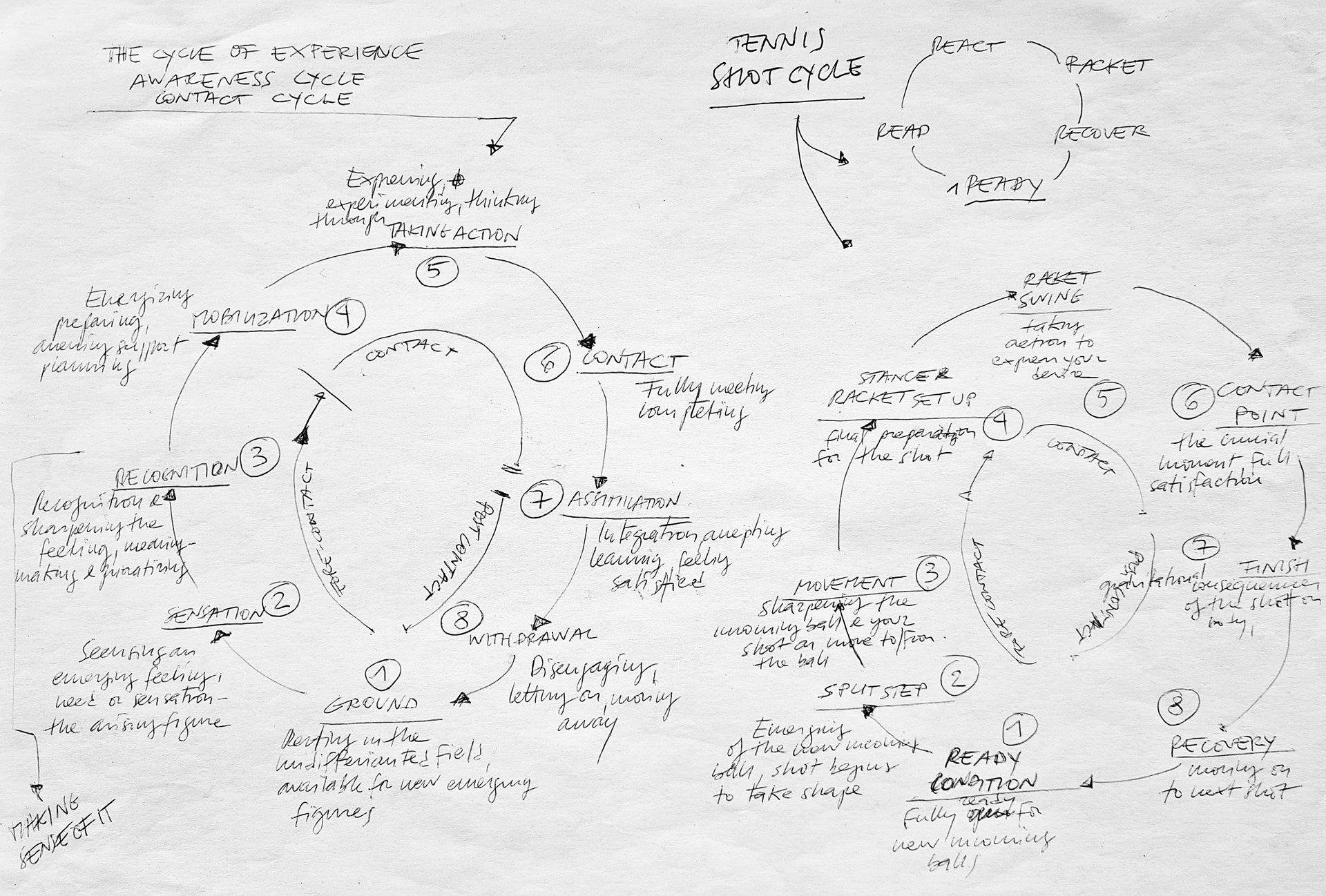
Gestalt Tennis


FIRST ENJOY THE DANCE
Gestalt Tennis offers a refreshing approach to the game, with pleasure of movement, intuitive adaptations and emotional awareness as its focal points - all nourished by controlled breathing.

From this innovative viewpoint, tennis is seen primarily as a unique opportunity to express ourselves through harmonious movements: a co-created, intuitive dance performed with racket and ball.
In this light, players are first guided to develop and enjoy the infinite variations of movements required to interact with infinite variations of incoming balls; and later advised on awareness and regulation of the emotional dynamics involved in score and competition.


Inspired by Gestalt - the renowned psychological theory known as ‘the science of the here and now’ - classes are constructed around main themes such as:
Ball, space & time
Constantly moving through space and time, a tennis ball and our quest for it are the ultimate embodiment of the here and now explored by Gestalt. Learn to breathe, move your body and interact with tennis balls in harmony with their speeds and trajectories, and always find the right place, at the right time, in the right shape.
Racket, gravity & dynamic balance
Harness your natural energy and work with gravity, not against it. Enjoy the continuous de-construction and re-construction of your balance to build fluid, responsive movements from the ground up and transmit energy all the way where it matters: the tip of your racket.
Footwork, stances & kinetic chain
Good tennis starts with good footwork supporting a body that moves as a unit. Learn to dance quickly, efficiently and discover which stance to aim for in different situations; then align feet, core and limb coordination to unlock grounded, fluid movements that reduce effort, maximise energy flow and reduce risk of injury.
Controlled breathing, wholeness & external focus
Appropriate breathing while playing is tennis’s secret weapon: it firmly positions our senses in the driving seat allowing intuitive, wholistic responses to each ball, and is particularly critical in longer rallies. Learn to control your breathing to master the art of intuition in the present moment, sharpen spatial awareness and slow down your perception of time.
Controlled breathing, emotional awareness & regulation
Every player - at any level - feels the pressure of their match. Discover how to remain calm and regulate rational and/or emotional overloads, especially at crucial moments and pressure points. When frustration, anticipation or performance anxiety can so easily crumble the fun, controlled breathing is the tool to reset the nervous system and refocus on the ‘here and now’ of the ball.

Alongside traditional tennis drills, Gestalt Tennis classes openly borrow from other disciplines and include:
Body awareness exercises
Controlled breathing routines
Imagery applications
Reflective practices

Gestalt Tennis is recommended for all levels, from beginners seeking a well-rounded foundation to advanced players looking to refine their skills and mental game.
For more details, please contact Miki on info@gestalttennis.com

